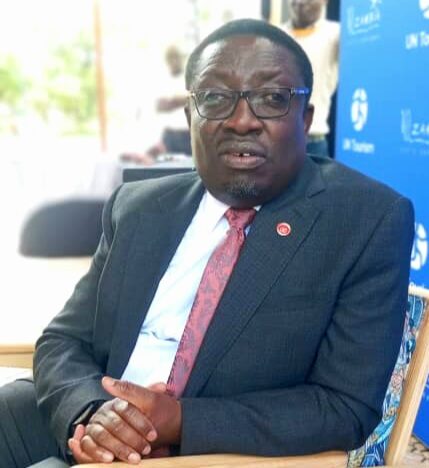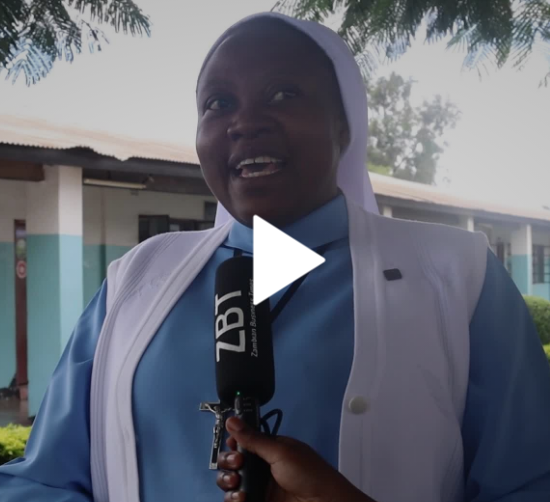
The Teaching Council of Zambia (TCZ) statistics made available to the Zambian Business Times – ZBT show that three provinces, namely Copperbelt (20%), Lusaka (19%) and Southern (12%) provinces make up about 51% of all the registered teachers in Zambia.
TCZ a statutory body that is mandated to regulate the practice of teaching as well as accredit the teaching colleges in country, has called on all teachers across the country and every one wishing to join the profession to take the registrations and licensing seriously.
TCZ Spokesperson Ngoza Malonga told ZBT in an exclusive interview, on March 23 2020, that the council was established according to the teaching profession Act no. 5 of 2013, to regulate teachers and accredit colleges as a way of improving the teaching profession in the country.
She said teacher registration serves as a basis for ascertaining the relevance of a practitioner’s qualifications, skills and competences to the teaching profession. Malonga said that the council has been in existence for four (4) years and so far, it has managed to register 151,393 teachers out of whom 149,823 have been issued with Teacher Registration Certificates.
She disclosed to ZBT, that Copperbelt and Lusaka provinces make up over 39%, while southern province had 12% of the total registered teachers, making the three provinces to account for about 51%, with the rest of the provinces making up the remaining 49%.
On the gender side, Malonga told ZBT that females teachers make up 58% (87,874) of the registered teachers whereas, male teachers make up 42% (63,519), showing that the profession has more women than men.
“The importance of verifying teachers qualifications is simply to know who is who and who is trained to teach what, because you can find that someone is trained as secondary teacher but they are teaching early childhood, so that is a disorder we are trying to cure. If you train as primary school teacher stick to your lane or advance your qualifications so that you are equip to teach in specific grade, subject or age group.
Teacher registration is once off while teacher licensing is periodically done every three years, the rationale behind is to verify whether one qualifies and is fit to teach in any Zambian school as well as ensure continues professional development through periodic licensing”, she said. Teachers have been offered payment periods, so paying of registration and licensing fees is manageable.
She said from the time the council came in place in 2016, it has managed to detect about 733 persons masquerading as teachers at various levels. The situation of unregistered and unlicensed teachers if left unchecked, dilutes and compromises the learning process and quality of education which is key for national development.
‘‘By regulation, we mean we as TCZ are going to provide governance over this noble profession called teaching, and for it to be called a profession, it means it has to be guided by certain rules and ethics of membership. So we have a special code of ethics for teaching profession, apart from the code of ethics for the civil service commission. This document was created in consultation with the public service commission who are the employers of teachers in the public service,’’ said Malonga.
She further told ZBT that education is one of the most important sectors that need to be professionalized and taken care of if the country is to develop, saying this can only be achieved by having well qualified and trained teachers to offer the teaching service to learners across the country.
“Now if there are unqualified teachers, what are they going to be teaching our learners? in Zambia, we sometimes talk about the inability to even produce simple products like toothpicks, but maybe the best question is ask ourselves is weather we have the right people in the right places, professionalizing the teaching profession is key to improving the quality of education in the nation”.
“TCZ is young and the teaching practice in Zambia is older, meaning we have come into existence after the teachers have already been teaching in the past 54 years plus, so we have gone back to register and license all practicing teachers, So even someone with over 30 years of teaching experience, they are all required to come through and register. So the council looks at who is qualified and who is eligible to teach,’’ she added.
Malonga further said once the council is done with the distribution of the licenses, it will start taking punitive measures on teachers not yet registered and will surrender the ones found wanting to the employers who for the government workers is the teaching service commission for sanctions as per the appropriate regulations.
She confirmed that TCZ has inspectors that go round to ensure compliance. This compliance checks are not only for government schools, but cuts across private and international schools. For those with foreign or international qualifications, TCZ works in corroboration with the Zambia Qualifications Authority to ensure that only recognized qualifications are accepted and eligible to register with the TCZ.







